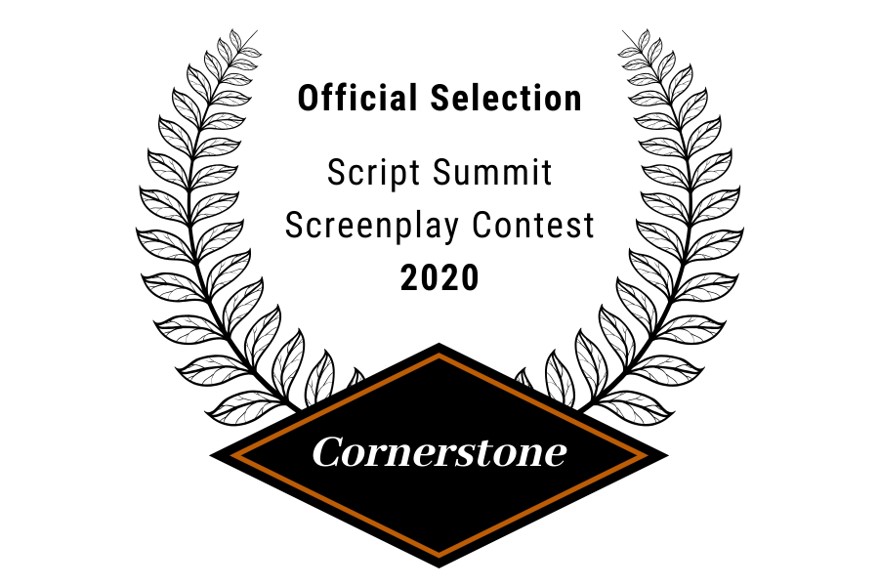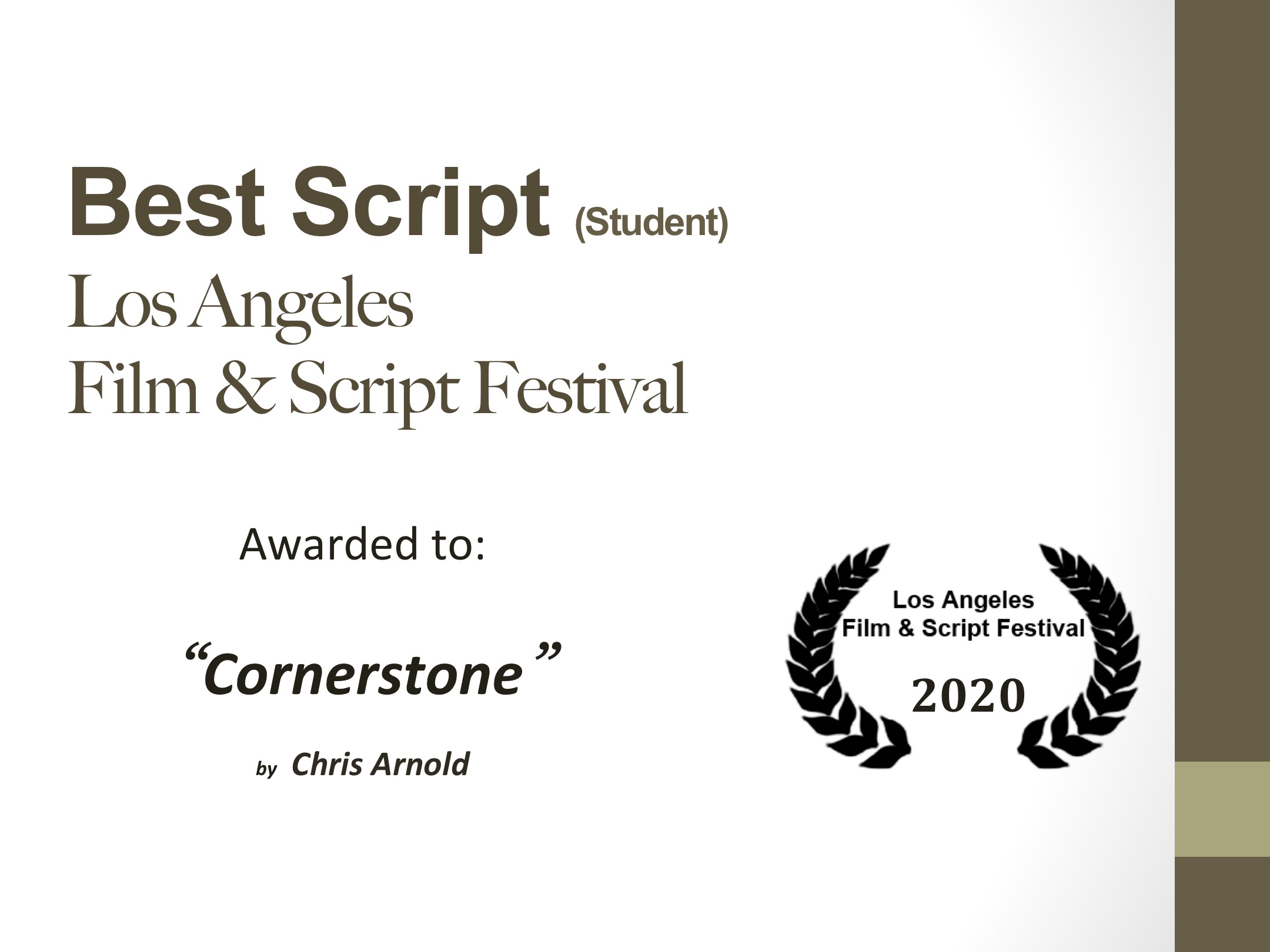Screenplays
Cornerstone
by Chris Arnold



Other Recognition:
- Semifinalist, Creative World Awards (2020)
- Semifinalist, Chicago Screenplay Awards (2020)
- Semifinalist, Los Angeles International Screenplay Awards (Winter 2020)
- Quarterfinalist, ScreenCraft True Story & Public Domain Competition (2020)
- Finalist, Student Los Angeles Film Awards (2020)”
One of the first things I came to admire about Cornerstone is the natural and realistic way that the characters talk to each other. There’s real authenticity to their dialogue that comes through straight away. They don’t just talk like generic characters filling in a niche, for the story, but feel as if they have lives of significance outside the pages we get here. There’s also a strong sense of a shared history that comes through in their speech. Early on it’s easy to hear the echoes of conversations that have previously been hashed out. The cast walks into this script with conflicts already underway, and plans already in motion.
Cornerstone succeeds largely off the strength of its characters, but also the incredibly well realized setting. It can be very tough to write period pieces because one slip up in the props used, the mentality of the time, or even the manner of speech can quickly tank any feeling of authenticity in a script. The writer here doesn’t seem to struggle with this aspect in the slightest. They clearly have some sort of personal familiarity with the time period or have done extensive research to ensure that the setting feels period appropriate while still being accessible to a modern audience.